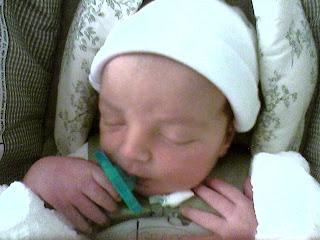This is a story about a little girl who lives in a house on the edge of a cliff at the end of a road on the outskirts of town near a lighthouse…
There is a little girl who lives on the edge of a cliff at the end of a road on the outskirts of town near a lighthouse.
The lighthouse is tall and long and can be seen for miles and miles from the north, south, east and west – and when the leaves on the trees have all fallen in autumn the girl can see the lighthouse from her bedroom window.
Her bedroom is on the second floor of the two-story house on the edge of the cliff at the end of the road on the outskirts of town near the lighthouse.
The girl's name is Margaret.
Margaret has light brown hair that rests on her shoulders, but sometimes covers her face when the wind blows. She has green-colored eyes and olive-colored skin.
Margaret has a sweet, chubby face and freckles on her nose.
Margaret likes to pretend that she is the keeper of the lighthouse on the edge of the cliff at the end of the road on the outskirts of town. She walks the steps of the lighthouse – up, up, winding, up, up and around until she reaches the very top. The light in her lighthouse is bright and warm and yellow and orange and big, and it hurts her eyes to look at it.
Margaret stands at the very top of her lighthouse on the edge of a cliff at the end of a road on the outskirts of town and she looks out into the ocean and sees boats floating and fish swimming and waves crashing and sailors sailing and fishermen fishing and surfers surfing and seagulls flying, and then she smiles.
One cold, wet, dark, dreary night when the sun had gone down and the moon was covered with clouds and the stars were all sleeping behind the deep, grey sky and Margaret was tucked neatly in her bed, the light in her lighthouse was blown out by a gust of wintry wind.
Margaret was frightened. Her room on the second floor of the two-story house on the edge of the cliff at the end of the road on the outskirts of town near the lighthouse became very, very dark.
Margaret looked for her flashlight.
It is a blue flashlight with small yellow and green stickers in the shapes of half moons and stars stuck to the sides. Margaret always smiled when she thought about her flashlight. "There are no green stars," she thought.
Margaret began crawling around her bedroom floor feeling for the flashlight because she wanted to see what was happening with her lighthouse. The light in the lighthouse had never been blown out by the wind or the rain or the snow that sometimes floats to the ground in wintertime.
Finally, Margaret found her blue flashlight with the yellow and green stars and half moons and she smiled and then shined the small light out of her window at the lighthouse on the on the edge of the cliff at the end of the road on the outskirts of town. For hours and hours and longer it seemed, Margaret shined her flashlight out at her lighthouse hoping that somehow its bright and warm and yellow and orange light would begin to burn and blaze and shine into her room.
But the light would not burn.
No matter how hard Margaret wished and hoped for the light in her lighthouse to shine, it remained very dark and the only light that could be seen for miles and miles from the north, south, east and west was from a very small flicker of a blue flashlight with yellow and green stickers in the shapes of half moons and stars stuck to the sides that shined from the second floor of a two-story house on the edge of the cliff at the end of the road on the outskirts of town near the lighthouse.
Outside, the wind was blowing and blaring and howling and hurling and the rain started to fall and fall.
The rain was falling and falling and pouring and pouring and all of the sudden Margaret saw a boat in the ocean. The boat was topsy and turvy and it was moving this way and that way and there was a bell on the boat that was blinging and blanging and ringing and clanging and calling for help as it headed for the rocks on the shore near the bottom of the cliff at the end of the road on the outskirts of town near the lighthouse that was not shining.
"This is terrible, terrible" thought Margaret. "This is terrible, and I must do something! Something must be done…"
But what could Margaret do from the second floor of a two-story house on the edge of the cliff at the end of the road on the outskirts of town near the lighthouse?
Margaret shined her flashlight out of her bedroom window and searched for the boat. It was not there! "Where did it go?" thought Margaret. "It was there and now it's gone!" Margaret put on her orange raincoat and her pink, rubber boots that did not match and she ran outside to the edge of the cliff at the end of the road near the lighthouse, shining her flashlight with the yellow and green stickers in the shapes of half moons and stars on it over the side of the cliff near her lighthouse. "There it is!" she screamed. She started waving and screaming and waving and shining her flashlight and all of the sudden the boat stopped coming toward the rocks on the shore.
The boat had stopped.
The boat was safe.
And Margaret smiled.
Though it was not daytime when Margaret shined her blue flashlight with the yellow and green stickers in the shapes of half moons and stars on it from her second floor window of her two-story house on the edge of the cliff at the end of the road on the outskirts of town near the lighthouse which saved the boat that was topsy and turvy and moving this way and that way with the bell was blinging and blanging and ringing and clanging and calling for help, the newspapers all claimed that "Margaret Saves the Day" and they printed a picture of Margaret with her light brown hair that rests on her shoulders, but sometimes covers her face when the wind blows and her green-colored eyes and olive-colored skin on her chubby face with freckles on her nose wearing her orange raincoat and pink rubber boots that did not match standing next to her lighthouse.
In the picture, Margaret is holding her flashlight. And she is smiling.
The End.





